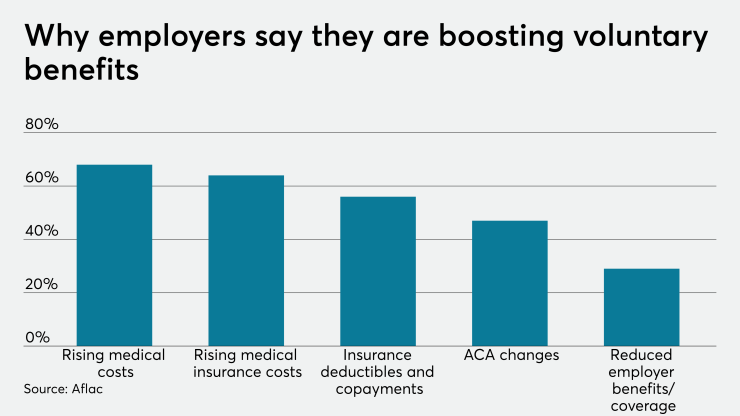LAS VEGAS — As a benefits broker, if you’re only talking to employers about medical, dental and vision — you’re about to lose them as clients.
That was the takeaway from an adviser-themed panel at Benefits Forum & Expo — a conference hosted by Employee Benefit News and Employee Benefit Adviser — last week: employers want to know about lifestyle benefits that will effectively attract and retain talent. Brokers who don’t deliver will be shown the door.
“Keeping clients is hard; you have to work at it by being innovative and bringing something unique to the table,” said Gene Leiberman, executive vice benefit of strategic partnerships at Pinnacle Communications International, a Florida-based lifestyle benefits vendor, during the panel. “Employers are looking to you to bring innovative ideas to help them stand out in the competition for talent.”
Jack Kwicien, managing partner at Daymark Advisors and the panel’s moderator, encouraged other advisers to look at voluntary benefits as an opportunity to build rapport with existing clients and expand their business.
“Lifestyle benefits are an emerging trend, and they have a lot of value for advisers,” Kwicien said. “Most products are commissionable; you can be making more money while making employees’ lives better.”
The four panelists defined “lifestyle benefits” as voluntary benefits that improve employees’ quality of life. A multitude of voluntary programs fall under this category. Highly sought-after offerings include financial wellness and experience benefits.
Among the most popular financial wellness benefits are those that help tackle student loan debt, said Ben Rozum, co-founder and president of Student Markets Group, an Arizona-based student debt relief and financial wellness benefit provider. Student loans are often a barrier to the lifestyle many workers want, and it takes a toll on their physical health, he says.
“Finances are the number one cause of employee stress, and the number one cause of many health conditions,” Rozum said. “Helping employees deal with their finances ultimately improves their well-being, and likelihood of staying at a company.”
Student loans aren’t always the problem; sometimes employees just need a little extra help to make ends meet, said Ennie Lim, president and CEO of HoneyBee, a San Francisco-based financial wellness benefit provider. Lim’s company provides a benefit that allows employees to access up to a week’s worth of their pay early, so workers won’t have to rely on short-term, high interest loans during financial emergencies.
“Financial wellness isn’t going anywhere because the cost of living is constantly increasing,” Lim said. “Offering benefits that help employees deal with this issue is a good way to retain talent.”
Greg DiCarlo, co-founder and CEO of Work2Live, a Florida-based digital
“We’re an experience economy,” DiCarlo said. “Work is stressful; that’s why employees aren’t purchasing things with money — they want experiences. That’s important to consider while evaluating different benefits.”






